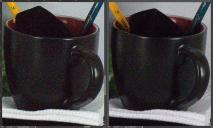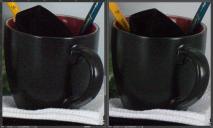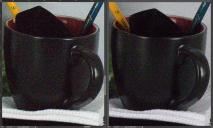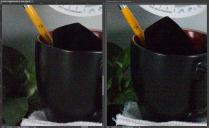
-
One of the best film that made history in regards to DR and tonality (Kodak VISION3) is about 13 stops: https://www.youtube.com/watch?time_continue=116&v=Njg2i99fVzk
I don't think there are any problems in regards to the Gh5 image quality (resolution, color, DR etc), only user associated problems; and this is valid for most cameras nowadays. :)
-
Here's the thing : 150mbit fixed bitrate for 4K is not really enough. That works out to 37.5mbit for each 1080p quadrant of a 4K video - so just think of how compressed and nasty 1080p is at 37.5mbit. Secondly - if you still only have a 150mbit fixed codec, and you record 8bit input to it, and then compare 10bit input into same codec... guess what... you're actually destroying more data or throwing more data away to fit into the same bitrate. Third - Sebastian doesn't want to admit his skintone is blotchy. Sorry dude. Most of us who get too much sun exposure or have just come in from the winter cold have blotchy skin. Although his shots look like he might have been eating spaghetti. I'm far from a Panasonic Apologist. I despise despise despise the gh4. James Miller gh5 footage looks awesome (externally recorded). We can partially blame Panasonic and C5D for the results that C5D is getting - trying to cram more bits into a fixed amount of bit rate will always yield less than perfect results (barring some magic algorithm). Suffice to say Log 10bit is probably best handled with an external recorder and still requires careful treatment of white balance and exposure.
-
For 150mb/s you would need the same cards as a GH4... "U3" class... which guarantees a minimum continuous write speed of 30MB/s (150mb/s is about 19MB/s).
Some U1 cards that are fast enough do work in the GH4 though... for instance I used the 64GB Extreme Pro 95MB/s cards (the ones everyone used for GH2 hacks, and the Pocket camera) in my GH4 for 2.5 years with no problems at all.
For the 400mb/s mode, which is 50MB/s, you would need the new "V60" cards, which have a minimum continuous write speed of 60MB/s. Those are supposed to be widely available this summer.
-
I shoot mostly action, at 30p or faster, with fast camera movements, often with a deep DOF. The kind of shooting that puts the most strain on a bitrate-starved IPB codec. So I am similarly, but less conclusively, skeptical of 150mb/s being enough, as I was of 100mb/s being enough for the GH4; fortunately, the GH4 was mostly adequate in my 2.5yrs of shooting with it, so I certainly hope the GH5 does the same.
Breaking it down by bitrate per "quadrant" isn't 100% accurate, though. With modern IPB codecs there isn't always necessarily a need for a 1:1 increase in bitrate in ratio to the resolution (i.e. 4 times the bitrate for UHD over HD). @LPowell or @Driftwood would be able to explain why this is is (scaling, quantization, etc), as I am no codec expert.
Also, depending on the implementation of the codec, 37.5mb/s can be plenty for HD (for most applications), look at how good the C100 internal footage looks at only 24mb/s. Compare that to a $400 camcorder that also does 24mb/s and there is a massive difference (and I don't mean from lens or sensor performace- just compression).
So even if the extra overhead for 4:2:2 and 10-bit (versus 4:2:0/8-bit) means the GH5 150mb/s is, per quadrant, no better than a c100... that's still pretty good. Not great, not amazing, probably not capable of holding extreme grades, but pretty good. And I hope that it will be better, as 37.5mb/s is 50% more than 24mb/s, and I don't think 10-bit and 4:2:2 need that much extra bandwidth.
-
It's fine if you nail exposure and color 100% in camera but will be far from sufficient with any meaningful change in color correction. This is the upside of the conclusion from C5D - but not fully explained as such by them. 100mbps-150mbps is enough for a video capture that won't be graded but not quite enough for something that's meant for post (like a LOG image)
-
I'll second that notion that implementation can really make the difference. The FS700 is another example of how surprisingly good low bit rate can look. Two of our shooters use them for A cam. We shoot a lot of action sports and it's never disappointed IMHO. True - we're not doing extreme grades, but fairly standard color correction with vary levels of pushing the image around to get what we're after. I'm impressed at what that camera is capable of. If it wasn't for the awful form factor and overall ergonomics, I would've flown it more. I've preordered the GH5 not because it's night and day better than the GH4. But it's enough of an upgrade to justify the money in my book. It'll pay for itself quickly. Plus I'm already invested in MFT glass from GH2 onward. So the investment was minimal.
-
Great.. by word on release date on these v60 cards and price point?
-
What do you think about 180fps function?
-
Do you think is it best option to upgrade to GH5 from G6? Or is there anything better? I want mostly 180fps function and better video stabilization. Thanks
-
My experience is: using external recorders (ninja assassin) the GH4's V-Log colour and other 'issues' (magenta blotches on faces macro blocking etc) vanish when using 422 8 bit externally. Which to me says it's more to do with the h264 encoder than bit depth. 8 bit 422 pro res V-Log (even LT) looks much better on skin than GH4 internal V-Log. 10 bit doesn't make as much difference - apart from when grading heavily.
-
So do we think the 400mb firmware update with give enough head room finally to have a cleaner 10 bit vlog image internally recorded?
-
@lmackreath definately. To put it in perspective, when you shoot Prores LT in UHD, it's around 400Mbit (30p is a little over, 24 and 50p under). Only that Prores is an old DCT based codec and h264 way more efficiant; I have no doubts that this upgrade will boost the cam a lot.
-
Fingers crossed it will be free!
-
At least the GH5 firmware has been finalized. Lumix ambassadors got the v1.0 firmware on march 2. Previous version was 0.5.
-
Test that clearly makes a difference. https://www.slashcam.de/artikel/Kurztest/8-Bit-vs-10-Bit--Panasonic-GH5-vs-GH4---der-Unterschied-in-der-Praxis.html
-
@karuchie Another test where they have used the Varicam 35 LUT. I wish people understood why these tests with LUT grading are flawed and do not show the true quality that can be achieved. I get good results with the GH4 Vlog internal 8 bit recording when grading in Resolve WITHOUT using a LUT. The LUT is nowhere near as good at getting a nice smooth result with minimal banding.
-
Does the current vlog code you can buy work with the new gh5?
-
@Vitaliy_Kiselev Can you please delete this post case I wrongly wrote the camera names for each camera image in the attachment and I post it once again below corrected. Thanks!

 GH5 vs D810 ISO 6400 vs 12800.jpg1597 x 958 - 1M
GH5 vs D810 ISO 6400 vs 12800.jpg1597 x 958 - 1M
 GH5 vs D810 ISO 12800 vs 25600.jpg1594 x 956 - 2M
GH5 vs D810 ISO 12800 vs 25600.jpg1594 x 956 - 2M -
@Eno
Just so I am clear...
Is the image captured by the GH5 on the right in your images? It's implied by your post, but the name of the comparison image files implies otherwise and there isn't a label in the pics. -
ACR 9,9 is here and GH5 RAW's can finally be edited.
After a quick testing I found it's low light performance to be around one ISO stop worst compared to the Nikon D810 35mm camera. In the first image D810 (on the left) is at ISO12800 and GH5 (on the right) at 6400. In the second image D810 (on the left) is at ISO 25600 and GH5 (on the right) at 12800.
The images were processed from Imaging Resource raw samples, with the D810 scaled down to the GH5 resolution.
One stop difference for a sensor almost 4 times smaller is quite an achievement, don't you say?

 D810 at ISO 12800 vs GH5 at ISO 6400.jpg1597 x 958 - 1M
D810 at ISO 12800 vs GH5 at ISO 6400.jpg1597 x 958 - 1M
 D810 at ISo 25600 vs GH5 at ISO 12800.jpg1594 x 956 - 2M
D810 at ISo 25600 vs GH5 at ISO 12800.jpg1594 x 956 - 2M -
And here's the Gh5 (on the left) vs the 5D mk2 (on the right), both of them at ISO 12800.

 GH5 vs 5D mk2 ISO 12800.jpg1594 x 976 - 2M
GH5 vs 5D mk2 ISO 12800.jpg1594 x 976 - 2M -
@Eno - that would put it in the ballpark of the EM1 Mk2 ISO performance I think :)
-
@Fost Of course, but with much better video specs and performance. :)
-

 sample901.jpg800 x 604 - 86K
sample901.jpg800 x 604 - 86K -
The stuff that neumann films shot in vlog-l, do we know how they dealt with exposure on that stuff?...was it nailed in shot or purposfully overexpose by a couple of stops to protect shadows?
Howdy, Stranger!
It looks like you're new here. If you want to get involved, click one of these buttons!
Categories
- Topics List23,980
- Blog5,725
- General and News1,353
- Hacks and Patches1,153
- ↳ Top Settings33
- ↳ Beginners255
- ↳ Archives402
- ↳ Hacks News and Development56
- Cameras2,362
- ↳ Panasonic991
- ↳ Canon118
- ↳ Sony156
- ↳ Nikon96
- ↳ Pentax and Samsung70
- ↳ Olympus and Fujifilm100
- ↳ Compacts and Camcorders300
- ↳ Smartphones for video97
- ↳ Pro Video Cameras191
- ↳ BlackMagic and other raw cameras116
- Skill1,961
- ↳ Business and distribution66
- ↳ Preparation, scripts and legal38
- ↳ Art149
- ↳ Import, Convert, Exporting291
- ↳ Editors191
- ↳ Effects and stunts115
- ↳ Color grading197
- ↳ Sound and Music280
- ↳ Lighting96
- ↳ Software and storage tips267
- Gear5,414
- ↳ Filters, Adapters, Matte boxes344
- ↳ Lenses1,579
- ↳ Follow focus and gears93
- ↳ Sound498
- ↳ Lighting gear314
- ↳ Camera movement230
- ↳ Gimbals and copters302
- ↳ Rigs and related stuff272
- ↳ Power solutions83
- ↳ Monitors and viewfinders339
- ↳ Tripods and fluid heads139
- ↳ Storage286
- ↳ Computers and studio gear560
- ↳ VR and 3D248
- Showcase1,859
- Marketplace2,834
- Offtopic1,319









